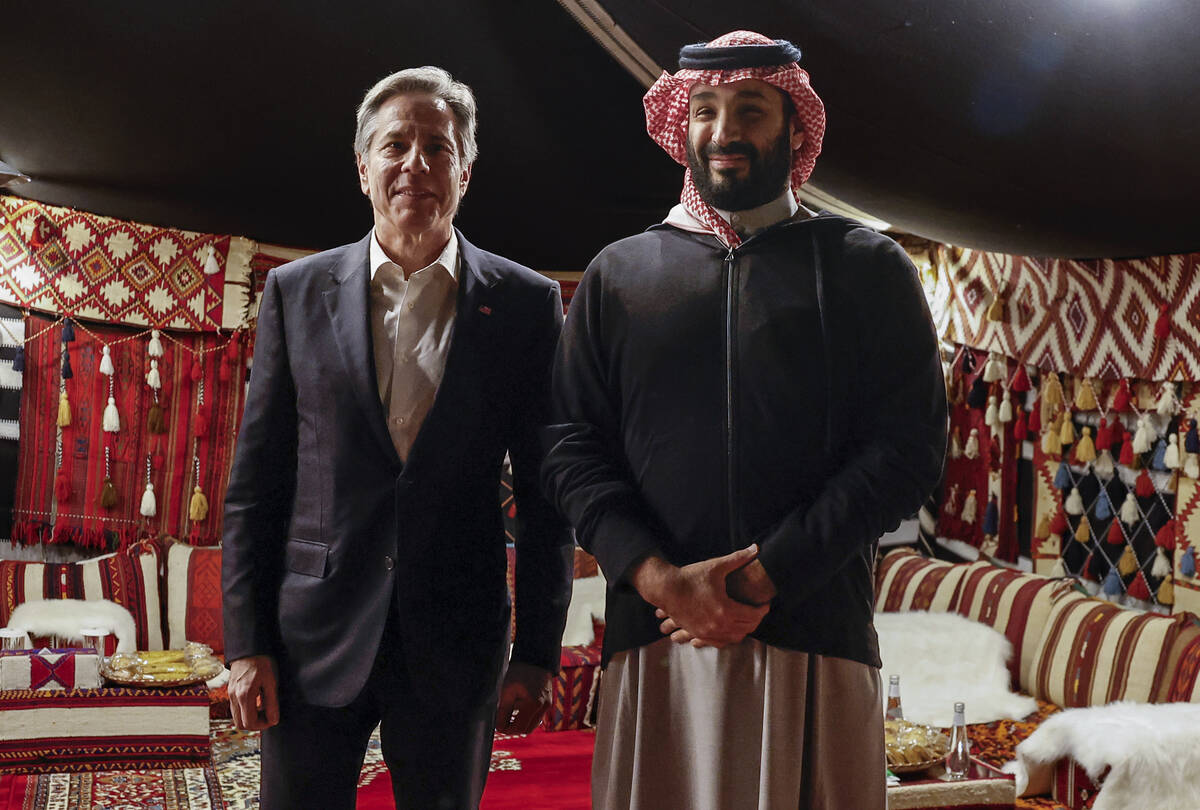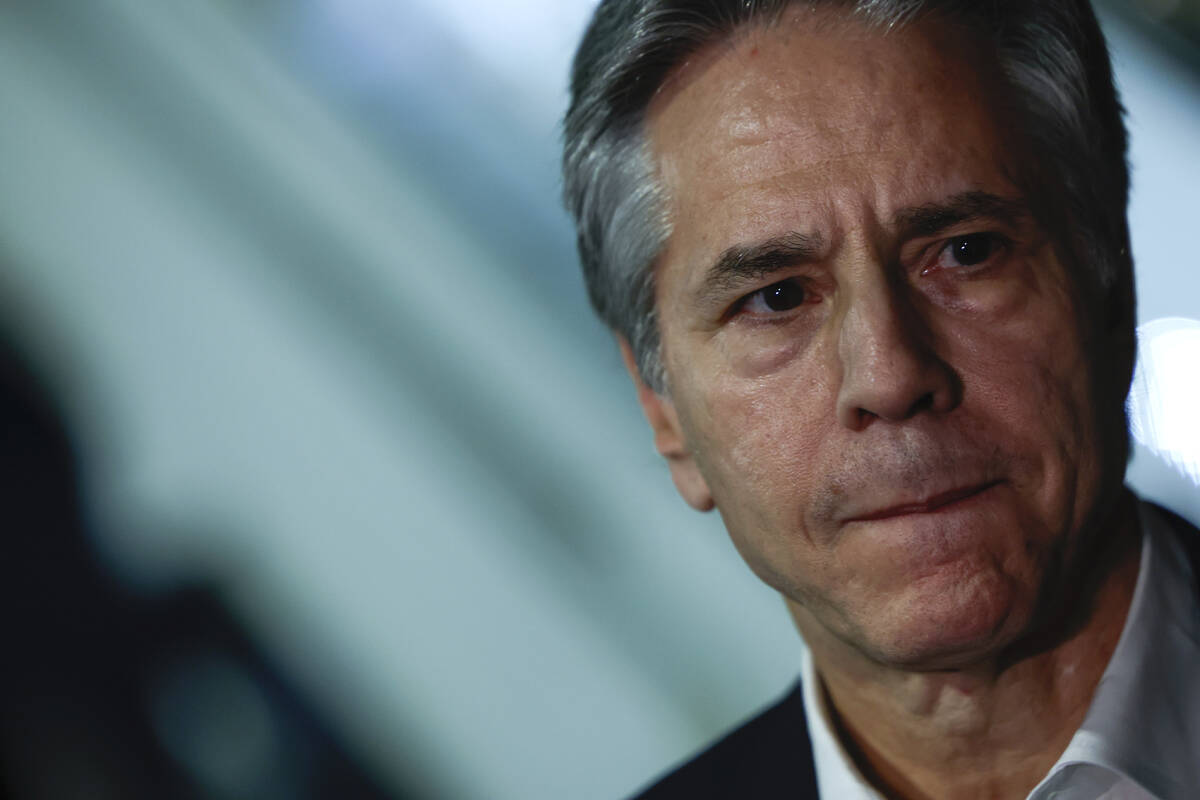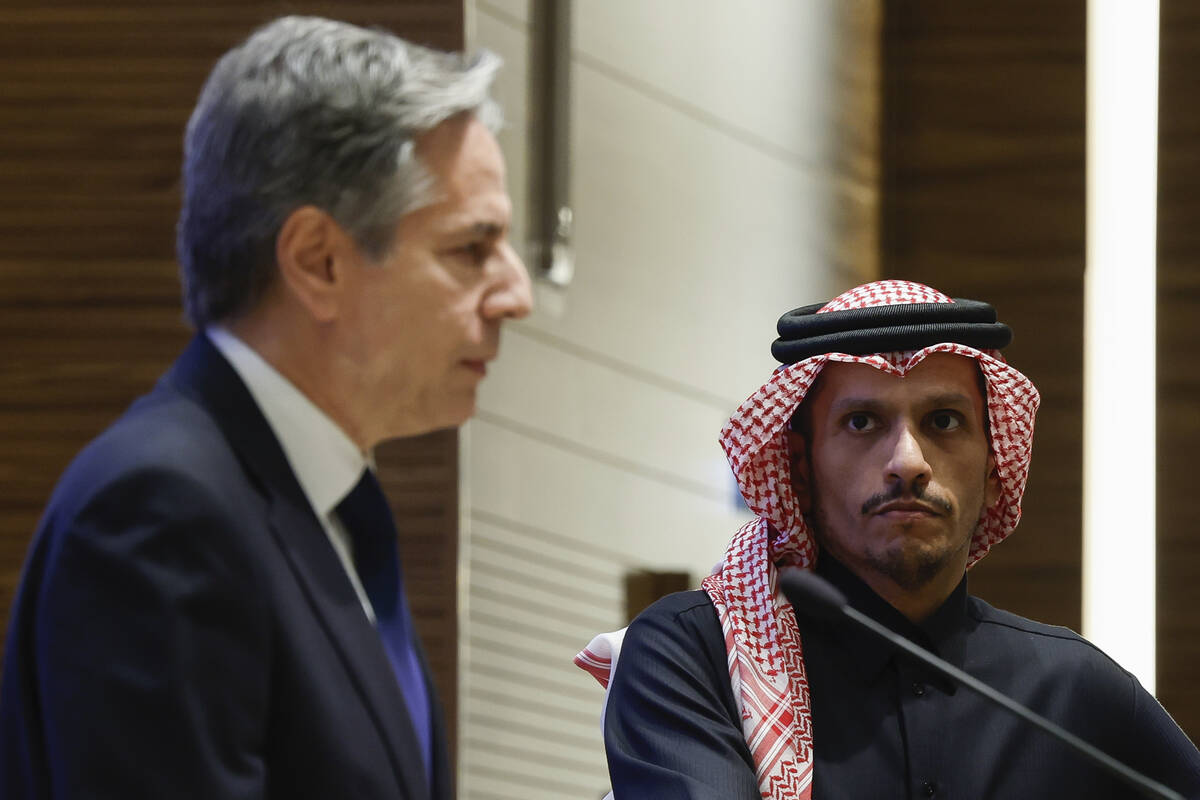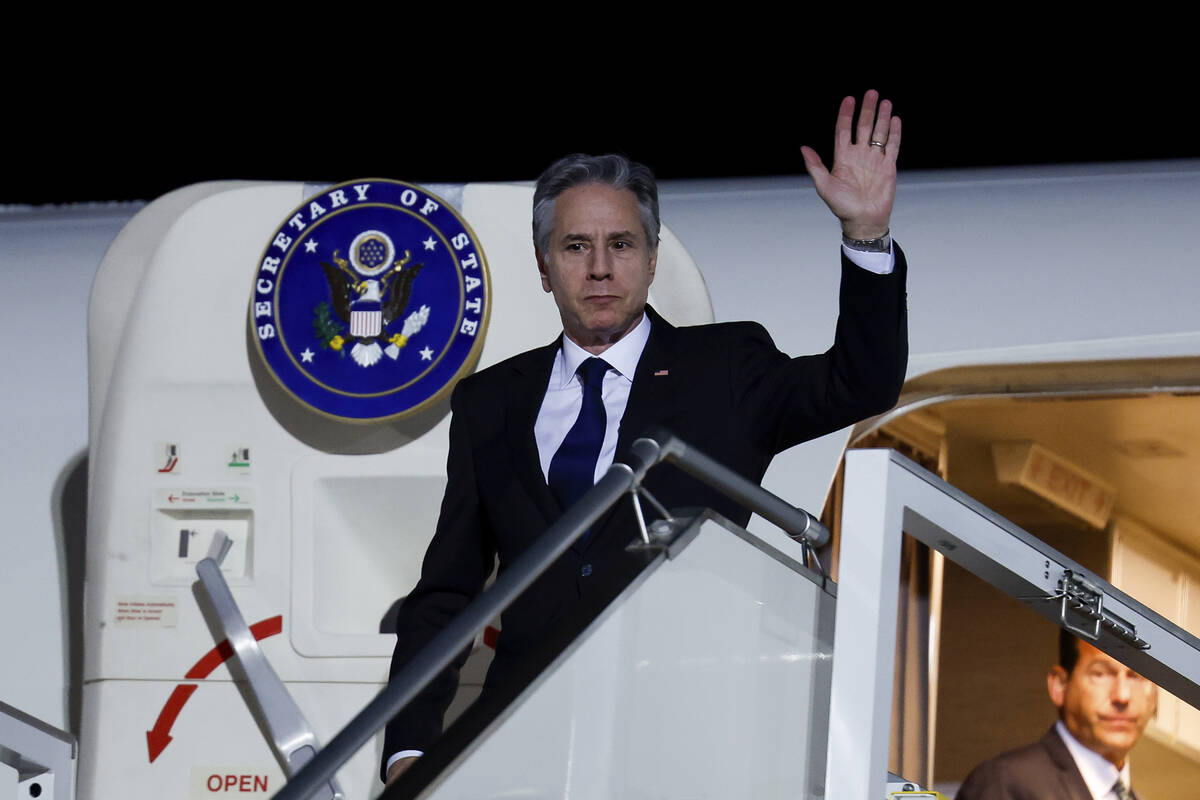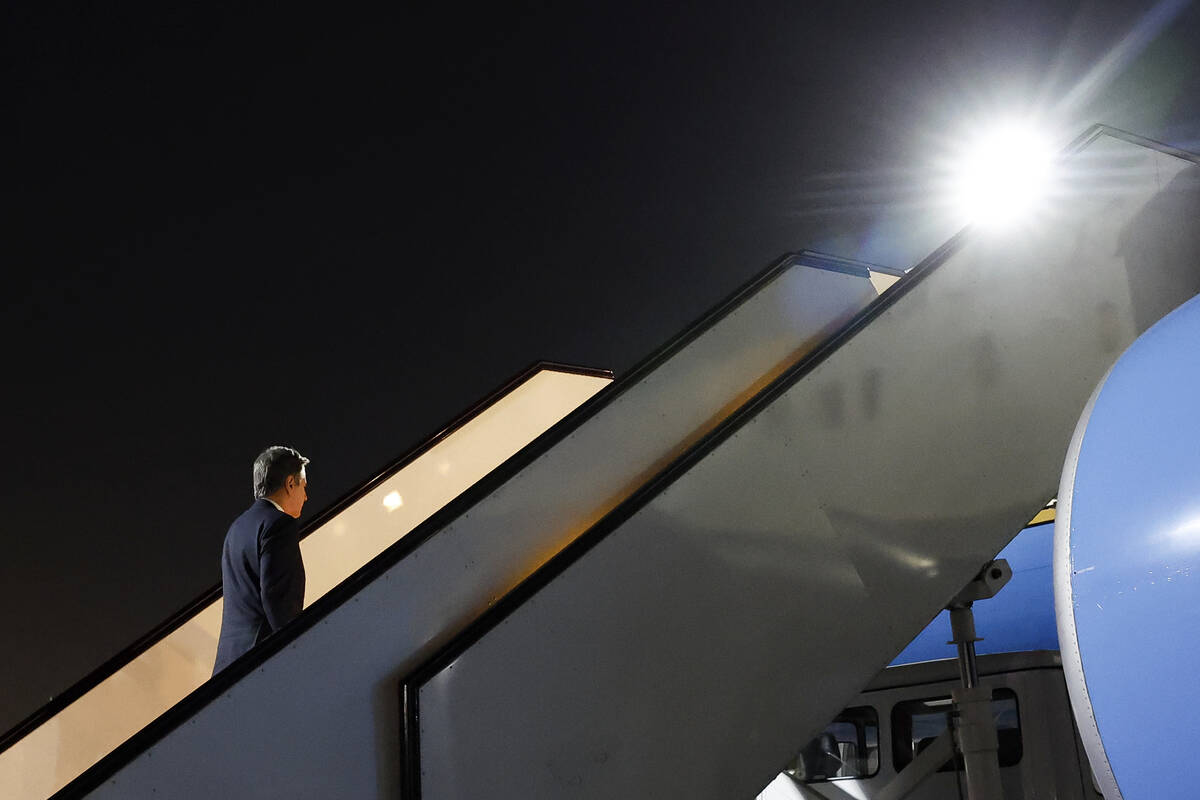U.S. secretary of state rallies Mideast leaders to prepare for Gaza’s post-war future
AL ULA, Saudi Arabia — Secretary of State Antony Blinken said Monday that four key Arab nations and Turkey have agreed to begin planning for the reconstruction and governance of Gaza once Israel’s war against Hamas ends.
Blinken, who is on an urgent Mideast mission aimed primarily at preventing the conflict from spreading as fears rise of a regional war, said Saudi Arabia, Jordan, Qatar, the United Arab Emirates and Turkey would consider participating in and contributing to “day after” scenarios for the Palestinian territory.
Those countries had previously resisted U.S. calls for post-war planning to begin, insisting that there must first be a cease-fire in Israel’s military response to Hamas’ deadly Oct. 7 terrorist attacks.
On what is his fourth trip to the Mideast since the war began in October, Blinken said those countries were now open to such planning and that each would consider its own involvement in whatever is eventually decided upon.
“Everywhere I went, I found leaders who are determined to prevent the conflict that we’re facing now from spreading, doing everything possible to deter escalation to prevent a widening of the conflict,” Blinken told reporters traveling with him.
Blinken made the comments after meeting Saudi Crown Prince Mohammed bin Salman at the Saudi royal’s winter camp outside the ancient incense-route trading city of Al Ula in western Saudi Arabia. Blinken had earlier visited Turkey, Greece, Jordan, Qatar and the UAE.
The leaders of those countries “agreed to work together and to coordinate our efforts to help Gaza stabilize and recover, to chart a political path forward for the Palestinians and to work toward long-term peace, security and stability in the region as a whole,” Blinken said.
He said they “are prepared to make the necessary commitments to make the hard decisions to advance all of these objectives to advance this vision for the region.”
Blinken did not offer specifics on potential contributions. Financial and in-kind support from the UAE and Saudi Arabia could be essential to the success of any plan.
After meeting Blinken during his visit to Qatar, Foreign Minister Sheikh Mohammed bin Abdulrahman al Thani called for an immediate cease-fire.
“This is a big test for our humanity,” he said. “We are looking for a sustainable future. However, the focus is now on stopping the fighting.”
In Amman on Sunday, Jordan’s King Abdullah II “warned of the catastrophic repercussions” of the war in Gaza while calling on the U.S. to press for an immediate cease-fire, a statement from the Royal Court said.
Israel has refused to agree to a cease-fire and the U.S. has instead called for specified temporary “humanitarian pauses” to allow aid to get in and people to get to safety.
Another urgent priority for Blinken is to surge humanitarian assistance to Gaza. In Amman, Blinken toured the World Food Program’s regional coordination warehouse, where trucks were being packed with aid to be delivered to Gaza through both the Rafah and Kerem Shalom crossings.
From Saudi Arabia, Blinken traveled to Israel and he will also visit the West Bank and Egypt before returning to Washington on Wednesday.
The U.S. has been pressing Israel for weeks to let greater amounts of food, water, fuel, medicine and other supplies into Gaza, and the U.N. Security Council passed a resolution on Dec. 22 calling for an immediate increase in deliveries. Three weeks ago, Israel opened its Kerem Shalom crossing, adding a second entry point for aid into Gaza after Rafah.
Still, the rate of trucks entering has not risen significantly. This week, an average of around 120 trucks a day entered through both crossings, according to U.N. figures.
Blinken’s visit comes as developments in Lebanon, northern Israel, the Red Sea and Iraq have put intense strains on what had been a modestly successful U.S. push to prevent a regional conflagration since Hamas terrorists attacked Israel on Oct. 7.



